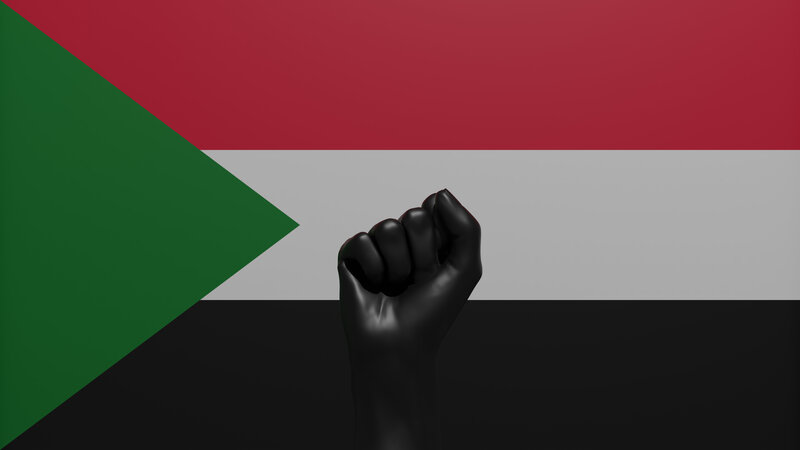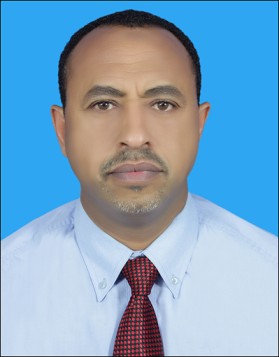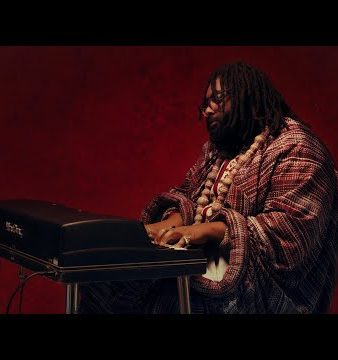Arka Saber’s Calls for Unity

The poet Arka Saber produced several touching poems, and it is not easy to count them all. However, some of his songs are sung by the well-known Bejaweit singers such as Muhammad Al Badri and Seedi Dushka. These songs were characterised by a special kind of love for the homeland, crying over the ruins, and the importance of returning home. In this regard, the poet dealt with the topic of unity either within the Beja groups or between those who were not yet convinced of their principles, which they were calling for. He also aimed to diminish disagreements, which resulted due to different views in some of the peace agreement clauses.
Although the poet was among those who advocated the Eastern Sudan Peace Project in 2006, being an objective that must be achieved, despite some unfair clauses, he was also trying to convince the Beja who were part of the established government and the revolution leaders to unite and look at the challenges. Using a poetic language, in which he mastered to find reasons for the agreement, and at the same time, he was calling for the existence of a back-up body in case of non-compliance with the terms of the agreement.
In order to preserve the body united, he used to count the successes, what was already achieved and what parallelism the next stage requires. Therefore, the coupled rational and balanced justifications among the Beja Congress leaders had to be stabled.
In the song, “Bejawiet Ar”, which means, “Beja sons” – sung by Mohammed Al Badri, a popular singer in the Eastern Sudan – Arka seemed proud of the young fighters who did well in the battles and now ready to rebuild the country. The poet remained an admirer of the youth and was proud of their performance in terms of the responsibilities they were taking during the stages of fighting, negotiation and reconstruction. He had always positive messages, showing himself in mediating situations to preserve the entity and what had achieved in years. In the poem, these features appeared in more than one verse.
“Bejawiet Ar“
| Transcription | English translation | Arabic translation | Bejawiet lines |
| /w?ǝ-rǝ-reiw ei-ʃʊk ɔ:-bɔi reh-sǝ qi:q-sein/,/jǝ beʤǝi dehǝi ǝl-jᴂ-nǝ kit-fǝi/ /tek tǝk tim-ʃǝ-bi:b-neik/ | Young those who sacrifice their lives and blood,will nothing is expensive for the Beja if they unit. | الشباب الذين يضحو بحيتاهم ودمهمما في شئ غالي للبجا اذا اتضامنا | وأرا ريو ايشوك أوبوي رهسا قيقسين يا بجاي دهاي اليانا كتفاي تتكتك تيمشبيبنيك |
| /i-mǝkǝij bǝs-qǝ-ri:bǝ ei-fᴂl bᴂ-ʃi:ʃǝ-li:-knǝ/,/qᴂl mik-ri:t ǝmɔ-rǝr-mɔi hi:-dǝ u:-dǝi tǝkw-eitu/ | Do not diminish or underestimate what was achieved, unity is required of you | لا تستهينو ولا تقللو من فأل ما قمنا بهالمطلوب منكم الاتحاد | امكي باسقريبنا ايفال باشيشيليكنا قال ميكريت تأموررموينا هيدااودهاي تكيتو |
| / beʤǝw-jeit ǝr bǝ- ǝm-mʌniǝ ʃu:-qᴂ/,/teis-lǝ bᴂ-fǝdi:q wehǝ-ʃɔ:n iqib-rehi: dehiǝ/,/wǝri hɔi bᴂd-qwǝqw nᴂ-ti ḑi-bǝ kin-dehɔ: ǝʊn- iʃǝr-qi:b/ | When you neither trust young Beja and nor agree with them, Who guard the borders and dying for it,The rest will follow them and won’t accept any satisfaction in the East Sudan. | ابناء البجا لما لا تأمنوهم وتستهاترو بيهمشوفو حدود بلدكم قبل لا تدخلو القبورمازلنا البقية سوف نضحي ولن نرضى باي شئ في الشرق. | بجاوييت ار با أّمني شوقاتيسلا بافاديق وهاشون اقبريهي دهايوري هوي بادقدقاق ناتي دبا كندهوك اون اشرقيب |
| /sǝqi:t mᴂ-dǝ tɔ-lehǝi bi:-rehǝit/,/sǝ-sɔ:-mir-ti:t itǝ-lǝʊ dǝ-mᴂ-mi:-jeik// beʤǝi u:-ʤeiʃ dǝʊ-lǝt iʃᴂ-rᴂtu ɔn- iʃᴂr-qi:b/ | We are ready to go further,only waiting for the season,but having this Beja army, is a sign of wresting for our freedom. | مستعدين لابعد من ذلك .فقط في انتظار موسم الامطار..ولكن الجيش البجاوي اشارة لانتزاع حريتنا | سقيت مادا تولهي بيرهيبنيكسسومبرتيت اتلو دمامامييك بجاي اوجيش دولة اشاراتاو |
| /beʤǝi u:z-lǝl ᴂkrᴂt qᴂdi:-jᴂj-tu/,/ǝm-ri:-nǝi-ti:t wehqɔ:n ti-reim-ti:t//hi:dǝ qǝd-ti:t ter-ri:b-tɔ:n ni:-rib ɔ:n iʃᴂr-qi:b/ | The humiliation of the Beja, who advocate for their case is an unforgivable misfortune,we supposed to unit and refuse whoever ignores us. | اذلال البجا الذين ينادون من أجل قضيتهم مصيبة لا تغتفرالمفترض نوحد صوفوفنا ونرفض من يرفضنا | بجاي اوذلال أكرات قضيايتوأمريناتيت وحقون تريمتيتهيدا قتيت .. تتريبتون نيرب اون اشرقيب |
| /wehᴂʃu:n wi:n-hɔn i-wǝṫǝn s?ǝ-jᴂ-mi:n-hɔ:n//w?ǝj-jɔ:n rehᴂ-bǝit iqǝ-ri:-mi ren-kwi:-hɔ:n ɔ:n iʃᴂr-qi:b/ | Our land calls us and so the country,being strong would let others respect us in the East Sudan | بلدنا تنادينا ووطنا يتوقعنا ولكن عدونا شاف قوتنا ولابد ان يهاب مننا في الشرق | وهاشون وعينهون اوطن سأيامينهونوأيون رهابيت اقريمي رنكيهون او اشرقيب |
In the first line of the poem, “Bejawiet Ar”, Arka praised the youth who sacrificed their most precious life and offered their soul in order to provide happy and peaceful life for others. The poet reported that the cause for which they fought would not benefit the locals without their contributions. Thus, he expected solidarity so that they can finalise the process of the peace agreement. In addition, he called on them not to diminish or underestimate the achievements being witnessed, but instead, he enhanced unity in order to fulfil what is coming.
As usual, in his style of dialogue, Arka posed a question in order to be answered by the listeners, requesting, “Who would you believe to secure you when the Beja people who guard the borders were at risk?” He followed that question by another statement confirming that the rest should follow them without discouraging them in achieving the aspiration of the East. In this line, there is an implicit reference that he saw the need for unity to achieve the goals for which these young people sacrificed.
The poet’s positive attitude and patience about what is coming can be seen as a sign by which he raises the spirits and what the fighters desire. In the fourth line, he argued that what you see far can be reached by preparing from now until the rainy season referring to the peace agreement. In addition, when the land is green we are about to practice normal life. However, the presence of the Beja army, which proves one of the signs of achieved victory.
In the fifth line, the poet highlighted in red lines a kind of self-esteem and complete satisfaction that indicating the acceptance of the clauses. However, he made it clear that the humiliation of the Beja people who demand their rights is unacceptable, and it is another unforgivable issue, whether they achieve their rights or not. Therefore, he calls again for national unity and rejecting those who refuse to reach their goals in the beloved East.
Arka concludes the poem, “Bejawiet Ar”, with a kind of nostalgia for his homeland and community, being stuck for a long time among the mountains and valleys, far from friends and families, hinting that it could be one of the reasons for the peace. At the same time, his language was not devoid of preserving the morale of his companions, by saying: “Also, the second party agreed to peace after they confirmed our strength and we attacked them several times.”
In the song, “Heeda Ban-gad”, which was sung by Seedi Doshka, Arka calls people for unity in order to achieve the goals for which they fought. The keyword that links the two songs is the word, “heeda”, which means “together”. The word is line two in the first song and the first line in the second song.
“Heeda Ban-gad”
| Bejawiet Lines | Arabic Translation | English Translation | Transcription |
| هِيدَا بَانْقَاد + هِيدَا بَانْقَادْتَكُوِيتْ ألْيَاتْ أُوفْنَ رُوبِي تِيمِيرْنَاأَرَوَاكْنَ هُويْ إيَايَنُوهوب سأْتِي لَنْدأي تهقيتنهناإِسلام باركوهوك وعدووك مِيشِي وَحقوقك تيميرنهن | بدلا أن تتوحدو وتطلبو نصيبكم كاملا ولما اخوانكم قاتلو أنتظرتم محايدين فقط بالسلام تتوفعو أن تحصلو على حقوكم؟ | Instead of uniting,and asking for all your rights, (and(when your brothers fought, you were grey, can peace bring rights! | /hi:d bᴂnq-qad hi:d bᴂnq-qad//tǝkw-weit ǝl-jᴂt ɔ:-fi-nǝ rɔ:-bei ti-mei-r-nhɔb sᴂti lin-dǝi teh-qit-nǝ//i-sǝ-lᴂm bᴂr-rǝ-kehɔk w?ǝ-du:-wɔ:k miʃ-ʃi wehq-qɔk ti-meir-nhǝn/ |
| اُوسِي ماسْوِي كَنِي ددْني فال قوابيب تميرنااوفنا قمتييت بريك ارواب ميشي تِمْديررينكيأرضَ بُوي هٌوي ِ فِفابْ باكَايْ مَسِي وهاشون تِيدنَيك | لما سمعتم النداء وصمتم ولم تتحركو هل تتوقعون الفأل مجانا؟وانت بدلا القتال الواجب وتحاربون بعضكم,لما تقولو ارضنا, كيف تكون ارضكم ولم تسكب دماءكم ودونها. | When you were called, you did respond?Do you expect omen while you are waiting? and instead of fighting each others, why can you say my land, without pouring out your blood? | /ɔ:-si mᴂs-wei kʌ-nei dʌd-nei fᴂl qwǝ-bǝ-jeib ti-meir-nǝ//ɔ:f-nǝ qǝm-ti:t bǝ-reik ǝr-wᴂb miʃi tim-dei-rǝ-ri:neik/,/jǝrdi bɔi hɔi fi-fᴂb bᴂ-kǝi mi-ʃi wehᴂ-ʃɔ:n ti-jᴂd-neik/. |
| اوتاريخ اتركيتيب كسو فال قابيب توميرنا!توشا با استهلي دئيت هيتيت ..ميكي قرماي برتنا! ديمه فعي هكلوي اوايلانا ددوي مريتنهن | تاريخكم وفألكم مع الاتراك هل كان مجانا؟لما ياخذ غيركم ما فيه الفائدة,ولما دائما انتم نائمون تتوقعون الخير ياتيكم بنفسه؟ | Was your history with the Turkish easy?When others took what was useful, and when you sleep, (do) you expect victory for nothing? | /u-tᴂ-ri:k i-tur-ki:b kǝs-sǝʊ fᴂl qᴂ-bi:-b tu-meir-nǝ/,/tɔ-ʃǝ bǝ-?ǝs-teh-lǝi di:t hǝi-ti:t mei-ki qir-mǝi bǝ-rǝt-nǝ/,/di:-mǝ fi: hǝ-kwǝ-lɔi ǝu-ei-lᴂ-nǝ dʌd- wei miri:t-nehǝn/ |
| أُوجِيشْ إبِجايْ رِبْتِييت أُوشْمَا ويرناي تهرِيونا إيشَرق دَااب كيناسيتيت سَقِي بِلْدي أور سهِدأتنا بِجاب إيقَرأ يكساب ماقي مركواي رِيبَتْنِهن | لما تتركو جيش البجا وتشجعو الاخرين,ولما تولو امر الشرق لغيره,ولما تتركو البجا لوحدهم هذا فقط يدل على خوفكم. | When you left the Beja Army to empower others,and the matter of the East assumed for others,leaving the Beja alone, indicates fearful stand. | /ɔ:-ḑeiʃ ub-ʤǝi rib-ti:t ɔʃ-mǝ weir nai the-riw-nǝ/,/i-ʃǝriq dᴂb kinᴂ-sei-ti:t sᴂqi bǝl-di-ɔr she-dǝt-nǝ//bi-ʤᴂb eiq-r?ǝ jek-sᴂb mᴂqi mᴂr-kwai ri-bǝt-nehn/ |
There is always an urge to have divergent opinions about accepting the peace agreement in many songs, but the poet always worked to bridge the gap between views. In this song, the poet calls for unity in order to facilitate the application of completing its clauses. In an invitation to the Beja people who did not fight, to show solidarity and strengthen their position without standing in a neutral position, in his familiar discursive style, Arka says, “How peace without uniting can fulfill our full rights?”
In a reproach message to the interior Beja, the poet blamed those who heard the call for fighting and did not respond, and at the same time they did not support their situations, saying, “Do you expect the omen without cost?”. He also added that he was worried about internal wars that occur among the Beja without being engaged in the duty fighting for their land. The second line concludes by criticizing their behaviour, by saying, “How do you say the East your land, and your blood was not poured out?”
Although Arka did not study any formal governmental education, the poet presented historical issues in his songs, which are expected to motivate, encourage and unite Beja youth. In line three, he dealt with the Beja wars against the Ottoman Empire and bright history, which was established, in defending their country through to the unity of our great parents. Arka wants to remind the Beja youth that the historical victories achieved as a result of striving and the solidarity to attain amazing breakthroughs against the greatest empires in the 19th century.
The poet concludes his poem by calling the Beja to unite, highlighting its significance and results as well as the victories that were witnessed in history. He also warned that their positions should be clear and to avoid the internal clashes among them which should be discarded in order to achieve the desired goals.
The article dealt with a fundamental issue, which is unity in the establishment of entities and societies as well as its effect on the individual and society. The poet referred to that in many poems, in which he extensively detailed its historical and modern results. Due to the importance of the topic, it was sung by the greatest Beja singers, and as a result, it became a culture even under the establishment of the previous government. The poet was genius in handling topics that can be right to be raised in the natural life situations of a human being. Thus, the poet conveyed his message to everyone through his evacuated master singers and put it in an elegant dress to directly reach the listener and flush with their feelings.

Dr Hassan Adrob is a Sudanese based in Oman and works as an English language and Linguistic lecturer and a teacher trainer at Red Sea University and Sohar University. His MA and PhD are in Applied Linguistics. Dr Hassan is a qualified CELTA instructor and has participated in an accredited IELTS Training Programme. He fulfilled the twin duties of lecturer in English and skills leader. Dr Hassan is a regular participant at conferences and has recently published three books with Eliva Press.
Related posts:




